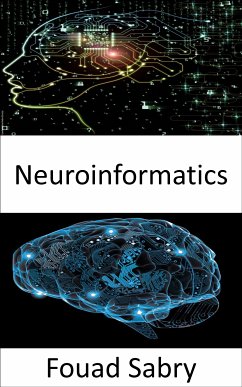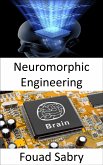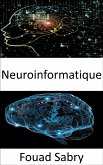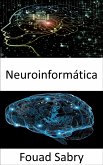What Is Neuroinformatics
The fields of informatics and neurology have been combined to establish the discipline of neuroinformatics. The processing of data and information in the field of neuroscience using artificial neural networks is referred to as neuroinformatics. There are three primary areas in which neuroinformatics needs to be utilized, and they are as follows: the creation of computer models of the nervous system and the processes that take place in the brain.the creation of tools for analyzing and modeling data from the field of neuroscience, the creation of tools and databases for the management and sharing of data from the field of neuroscience at all levels of analysis,
How You Will Benefit
(I) Insights, and validations about the following topics:
Chapter 1: Neuroinformatics
Chapter 2: Neuroscience
Chapter 3: Mind uploading
Chapter 4: Computational neuroscience
Chapter 5: Bio-inspired computing
Chapter 6: Neuromorphic engineering
Chapter 7: Terry Sejnowski
Chapter 8: Neural network
Chapter 9: Krasnow Institute for Advanced Study
Chapter 10: Neural computation
Chapter 11: Blue Brain Project
Chapter 12: International Neuroinformatics Coordinating Facility
Chapter 13: Human Brain Project
Chapter 14: Multi-simulation coordinator
Chapter 15: Brain simulation
Chapter 16: Informatics
Chapter 17: Nervous system network models
Chapter 18: Outline of brain mapping
Chapter 19: Upinder Singh Bhalla
Chapter 20: Predictive coding
Chapter 21: MIT Department of Brain and Cognitive Sciences
(II) Answering the public top questions about neuroinformatics.
(III) Real world examples for the usage of neuroinformatics in many fields.
(IV) 17 appendices to explain, briefly, 266 emerging technologies in each industry to have 360-degree full understanding of neuroinformatics' technologies.
Who This Book Is For
Professionals, undergraduate and graduate students, enthusiasts, hobbyists, and those who want to go beyond basic knowledge or information for any kind of neuroinformatics.
The fields of informatics and neurology have been combined to establish the discipline of neuroinformatics. The processing of data and information in the field of neuroscience using artificial neural networks is referred to as neuroinformatics. There are three primary areas in which neuroinformatics needs to be utilized, and they are as follows: the creation of computer models of the nervous system and the processes that take place in the brain.the creation of tools for analyzing and modeling data from the field of neuroscience, the creation of tools and databases for the management and sharing of data from the field of neuroscience at all levels of analysis,
How You Will Benefit
(I) Insights, and validations about the following topics:
Chapter 1: Neuroinformatics
Chapter 2: Neuroscience
Chapter 3: Mind uploading
Chapter 4: Computational neuroscience
Chapter 5: Bio-inspired computing
Chapter 6: Neuromorphic engineering
Chapter 7: Terry Sejnowski
Chapter 8: Neural network
Chapter 9: Krasnow Institute for Advanced Study
Chapter 10: Neural computation
Chapter 11: Blue Brain Project
Chapter 12: International Neuroinformatics Coordinating Facility
Chapter 13: Human Brain Project
Chapter 14: Multi-simulation coordinator
Chapter 15: Brain simulation
Chapter 16: Informatics
Chapter 17: Nervous system network models
Chapter 18: Outline of brain mapping
Chapter 19: Upinder Singh Bhalla
Chapter 20: Predictive coding
Chapter 21: MIT Department of Brain and Cognitive Sciences
(II) Answering the public top questions about neuroinformatics.
(III) Real world examples for the usage of neuroinformatics in many fields.
(IV) 17 appendices to explain, briefly, 266 emerging technologies in each industry to have 360-degree full understanding of neuroinformatics' technologies.
Who This Book Is For
Professionals, undergraduate and graduate students, enthusiasts, hobbyists, and those who want to go beyond basic knowledge or information for any kind of neuroinformatics.
Dieser Download kann aus rechtlichen Gründen nur mit Rechnungsadresse in A, B, BG, CY, CZ, D, DK, EW, E, FIN, F, GR, H, IRL, I, LT, L, LR, M, NL, PL, P, R, S, SLO, SK ausgeliefert werden.









